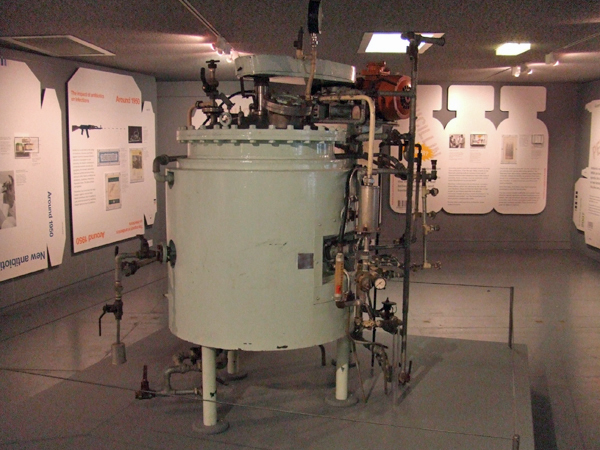We often take note of major discoveries, like the discovery of Penicillin in 1928 by Scottish scientist Alexander Fleming, but we don’t always recognize the effort it takes to make the results of these medical advances widely available.
Margaret Hutchinson was born on October 27, 1910. She received her degree in science at Rice in 1932 and her Doctor of Science degree from MIT in 1937 — the first woman in the USA to get a doctorate in science. She married William Rousseau, also a chemical engineer, and had a family, but she continued to work, not on groundbreaking fundamental science principles, but on the practical production of critical materials, especially those strategically important to the US during World War II.
Rousseau developed the method of deep-tank fermentatiron of molds. Growing mold efficiently may not seem like a major contribution (my refrigerator can do a more than adequate job) until you remember that penicillium is a mold, and realize that her engineering expertise made large-scale production of penicillin possible, at a time when it was in high demand to treat troops infected with bacterial diseases. She not only came up with a method, she designed and oversaw construction of the first penicillin production plant, no mean feat when you consider the logistics of construction during wartime, and the difficulties she faced as a woman in charge of a largely male team.
Rousseau’s success with the penicillin plant opened further opportunities: she developed methods of mass production and oversaw construction of plants to produce synthetic rubber for tires and high-octane gasoline as aviation fuel — both were essential for America’s war effort.
As a practical scientist and production logistician, Rousseau is, of course, not alone. Every consumer object I use has a backstory: someone had to figure out the basic principles involved, and someone (usually someone else) how to manufacture it before I could buy and use it.
It is worth looking at the tools and materials we use, and giving some thought and perhaps even thanks for the efforts that made it possible for us to have them.

